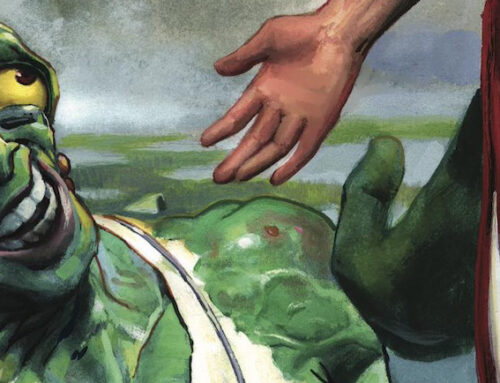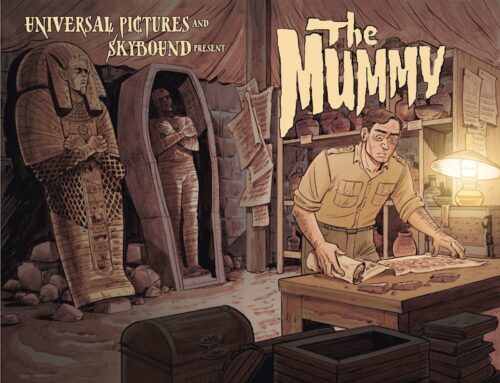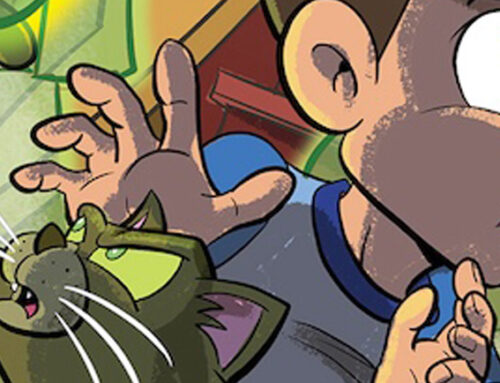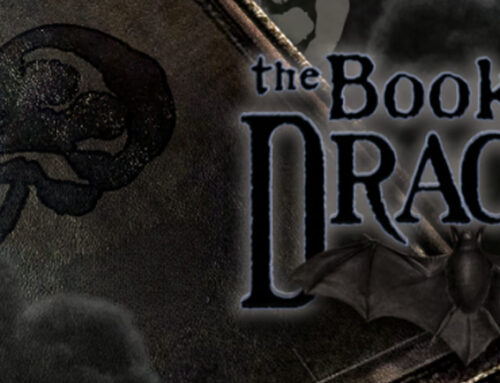Family Tree is a relatively new series by Jeff Lemire which explores an agricultural apocalypse through the eyes of a modern family in small-town America. Issue 1 is primarily about establishing characters and the very early beginnings of the conflict– there’s not a whole lot happening in this first book, but the slower pacing is great for building dread.
relatively new series by Jeff Lemire which explores an agricultural apocalypse through the eyes of a modern family in small-town America. Issue 1 is primarily about establishing characters and the very early beginnings of the conflict– there’s not a whole lot happening in this first book, but the slower pacing is great for building dread.
The series opens in a drab grocery store where our main character Loretta works as a cashier and is engaged in a terse grumbling match with an elderly patron which will feel all too familiar for anyone who has worked in the service industry. From the outset, it’s clear that this is a series which emphasizes relatable, everyday characters and which isn’t afraid to delve into the mundane– early character interactions both in the grocery store and later in the principal’s office at Loretta’s son’s school do an excellent job at grounding the protagonists. While the first issue alone isn’t quite enough to draw conclusions from, it seems like this use of slice of life storytelling could be very effective as a juxtapositioning tool for the hinted-at-but-not-yet-seen apocalypse, and if nothing else it makes for a stronger and more believable cast of characters.
About halfway through Family Tree #1 the real conflict develops: Loretta’s daughter Meg has a rash which has begun to spread and grow into some kind of plant, complete with leaves and the beginnings of branches. Here the art (supplied by Phil Hester, Ryan Cody, and Eric Gapstur) is pivotal in making Meg’s condition as uncomfortable to look at as possible. The use of angular, harsh lines throughout the book makes the root systems taking hold in the girl’s skin look almost like cracks in a pane of glass or the familiar texture of a riverbed in a severe drought.
A mad dash to the hospital introduces human antagonists as well as a mysterious figure who will undoubtedly be central to the story in further issues. By the end of Family Tree #1 we’ve gone from a tense pressure cooker of family dynamics to medical emergencies, immediate danger, and the promise of a coming cataclysm. The series is off to a great start– it’s intriguing and Loretta is an easy character to empathize with, I just hope the relatability and suspense carry through to future installments.
Rating 8 out of 10 branches growing from human flesh







